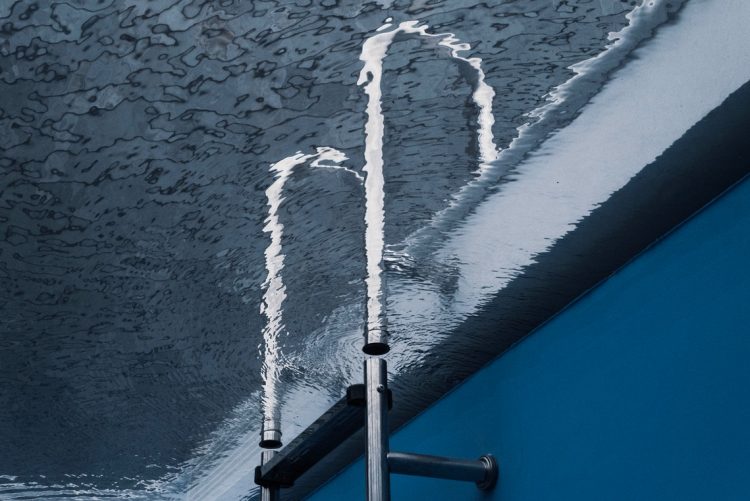It’s a fact that there are metals in your pool. And most occurrences of metal in your pool water comes from the water itself.
Most municipal water and well water contains metals such as copper, iron, and calcium, but it’s important to remember that, while the metals found in your pool water generally aren’t toxic, they can damage your pool’s surface and make your water unpleasant. Which makes it tough, when it comes time to do some pool plastering.
In this article, we’re going to look at how to test for and remove metals in your pool.
How To Test For and Remove Copper
An easy way to tell that your pool has copper in it is by looking for the buildup of green and black stains around the liner. Most instances of copper come from your pool’s filter and plumbing system, which can corrode because of low pH levels. Also, copper is often found in your town’s water supply naturally, and when water evaporates, it leaves that copper behind.
Testing for copper is easy; you can purchase a water test kit from wherever you buy pool supplies or online. Most experts recommend you test your pool’s water for copper at least once a month, however, it’s recommended you do a pH test every week. Keeping your pH balances will help regulate the amount of copper in the water so it won’t build up and stain your pool.
If your pool tests positive for copper, getting rid of it is easy if you use a metal trap filter, which takes care of copper and removes other debris.
How to Test For and Remove Iron
As with copper, iron is commonly found in pool water, and is easy to spot because it turns the water brown. Iron is found often in well water or iron levels can rise because of low pH.
As with copper, you can purchase a special kit that will test for iron. Experts recommend testing for iron at least once a month. Also like copper, iron is easily removed by using a metal filter or you can use a sequestrant.
How to Test For and Remove Calcium
Buildup of calcium is common in pools as it is with your home’s faucets, and this is due to the hard water, which contains too much calcium and magnesium. Too much calcium can turn your pool water cloudy and can wreak havoc with your pool heater.
Unlike some other metals, calcium shouldn’t be removed completely, rather, you should regulate the amount. The ideal amount of calcium in your pool should be between 200-500 ppm.
You can adjust calcium levels by draining out some of the hard water and replacing it with soft water. Or, if your calcium levels are too low, simply add some calcium chloride.
While there are other types of metals you’ll find in your pool, these three are the most common. The key is to perform regular water tests and correct any problems quickly before they have a chance to do any real damage to your pool or pool deck & need some pool resurfacing and pool deck resurfacing.





